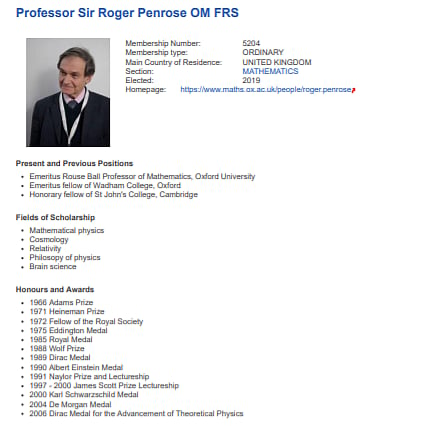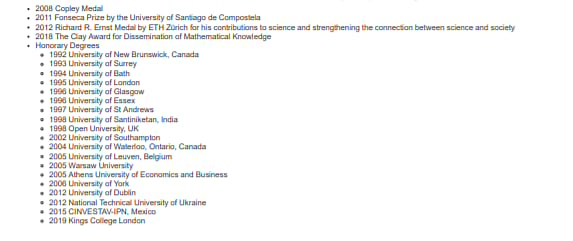The Royal Swedish Academy of Sciences has awarded the 2020 Nobel Prize in Physics with one half to Roger Penrose and the other half jointly to Reinhard Genzel and Andrea Ghez.
Roger Penrose has been awarded the Nobel Prize in Physics “for the discovery that black hole formation is a robust prediction of the general theory of relativity.”
While Reinhard Genzel and Andrea Ghez have been awarded the Nobel Prize in Physics “for the discovery of a supermassive compact object at the centre of our galaxy.”
Roger Penrose used ingenious mathematical methods in his proof that black holes are a direct consequence of Albert Einstein’s general theory of relativity. Ten years after Einstein’s death in 1965, Penrose proved that black holes really can form and described them in detail. "His groundbreaking article is still regarded as the most important contribution to the general theory of relativity since Einstein," notes The Royal Swedish Academy of Sciences.
Meanwhile, Reinhard Genzel and Andrea Ghez used the world’s largest telescopes and developed methods to see through the huge clouds of interstellar gas and dust to the centre of the Milky Way. "Stretching the limits of technology, they refined new techniques to compensate for distortions caused by the Earth’s atmosphere, building unique instruments and committing themselves to long-term research. Their pioneering work has given us the most convincing evidence yet of a supermassive black hole at the centre of the Milky Way," wrote The Royal Swedish Academy of Sciences.
Along with the prestigious medal, 10 million Swedish kronor will be awarded, with one half to Roger Penrose and the other half jointly to Reinhard Genzel and Andrea Ghez.
Here's a look at their resumes:
1. Andrea M. Ghez
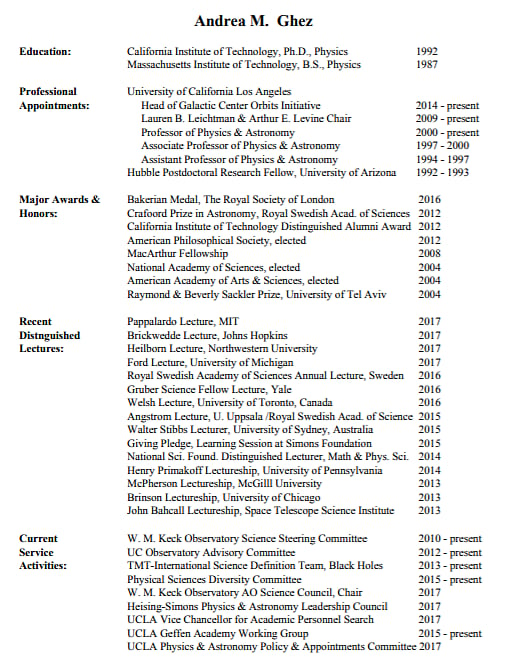
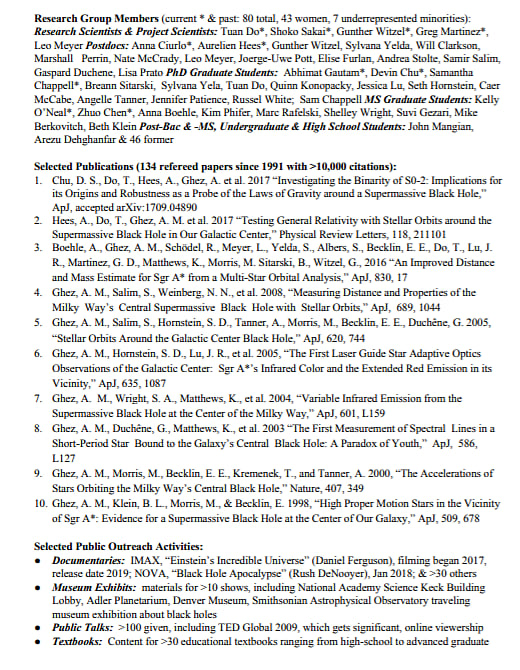
2. Reinhard Genzel
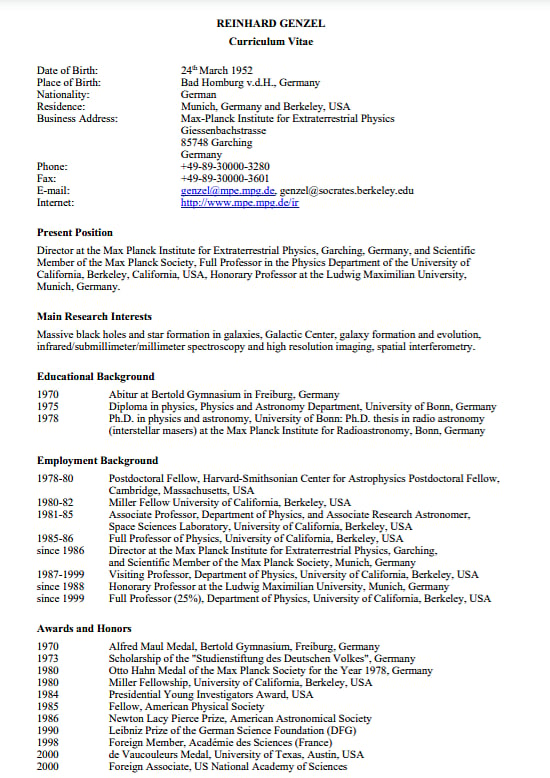
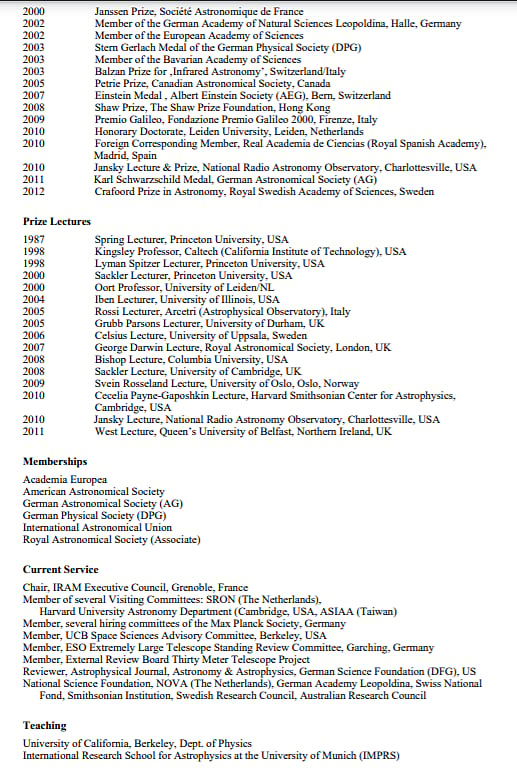
3. Roger Penrose
